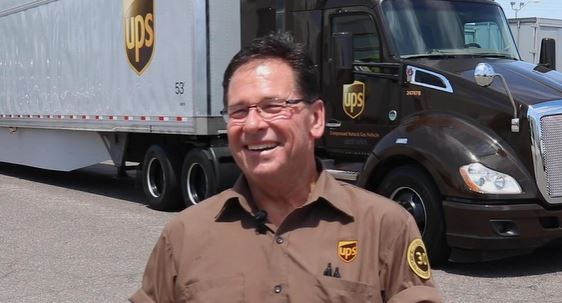Run on Less Regional Participants Post 40% Improvement Over Standard Fuel Economy

The North American Council for Freight Efficiency (NACFE) shows that with the right technology and a skilled driver it is possible to achieve MPGs far above those of the average fleet
The trucks and drivers in Run on Less Regional, a freight efficiency demonstration conducted by the North American Council for Freight Efficiency (NACFE), hit an impressive average 8.4 miles per gallon (MPG) for the three-week event, a 40% improvement over standard fuel economy for vehicles in the same class.
The 10 trucks from participating fleets — C&S Wholesale Grocers, Hirschbach, Hogan Transportation, J.B. Hunt, Meijer, PepsiCo, Ploger Transportation, Schneider, Southeastern Freight Lines, and United Parcel Service — saved over 2500 gallons of fuel and over 25 tons of carbon dioxide. On average, the 10 fleets saved approximately $800 per vehicles over the course of 18 days. If all regional carriers reached this benchmark MPG, annualized potential savings would be over $9 billion.
“Going into the Run, we had no idea what to expect in terms of just how fuel efficient these fleets could be,” said Mike Roeth NACFE’s executive director. “The numbers these trucks and drivers put up demonstrate that it is possible to achieve high MPGs in regional operations.”
NACFE chose to focus this year’s Run on regional haul operations to demonstrate that with the right investment in technology and with skilled drivers it is possible to achieve MPGs far above those of the average fleet. Over the course of Run on Less, NACFE also discovered that:
- High efficiency requires a remarkable group of drivers and fleet leaders.
- Big data and connectivity will help us optimize for each route.
- There is significant diversity in duty cycles so it is crucial to understand your business and spec equipment and coach drivers for each route.
- More regional haul is good for trucking—drivers and equipment stay close to home, and it is fertile ground for zero-carbon fuels, specifically electric trucks.
The 10 trucks operated within 300 miles of their home base in hub and spoke, dedicated and multi-stop routes. They faced a variety of challenges including traffic congestion, construction, operating in urban environments, and traveling secondary roads. Some of the trucks operated in two shifts per day, possibly in differing duty cycles, and there was one natural gas truck, which has lower inherent efficiency. NACFE also learned that because of the diversity of duty cycles, the equipment has a very utilitarian design, which challenges optimization. Despite those challenges, using commercially available technologies these trucks demonstrated that it is possible to operate in a fuel-efficient manner in real-world regional haul operations.
“With a growth in regional haul, it is important that the trucking industry focus on making this sector as efficient as possible,” said David Hoover, Director Outbound Logistics at Meijer. “What we all learned here with respect to the various duty cycles and driver performance is crucial to designing tractors, trailers, routes, etc. to dramatically lower the carbon footprint of North American goods movement.”
Throughout the Run, the three Freightliners, two Internationals, two Kenworths, one Peterbilt, and two Volvos, piloted by drivers Louis Scaruffi, Mark Casey, Glen Williams, Dustin Whitener, Rita Bare, Lou Martinez, Travis Lauer, Michael Tam, Beau White, and Darin Salgado, respectively, were monitored by devices installed by Geotab and by data loggers from the National Renewable Energy Laboratory, both event sponsors. Speed, load, elevation changes, number of stops, and weather were monitored during the three weeks of the Run. Shell was title sponsor for the Run, and a host of other companies were event sponsors and supporters. A full list of drivers, fleets, and sponsors is available at runonless.com.
Category: Driver Stuff, Electric Vehicles, Featured, Fleet Diagnostics & Software, Fuel & Oil, General Update, Green, News









